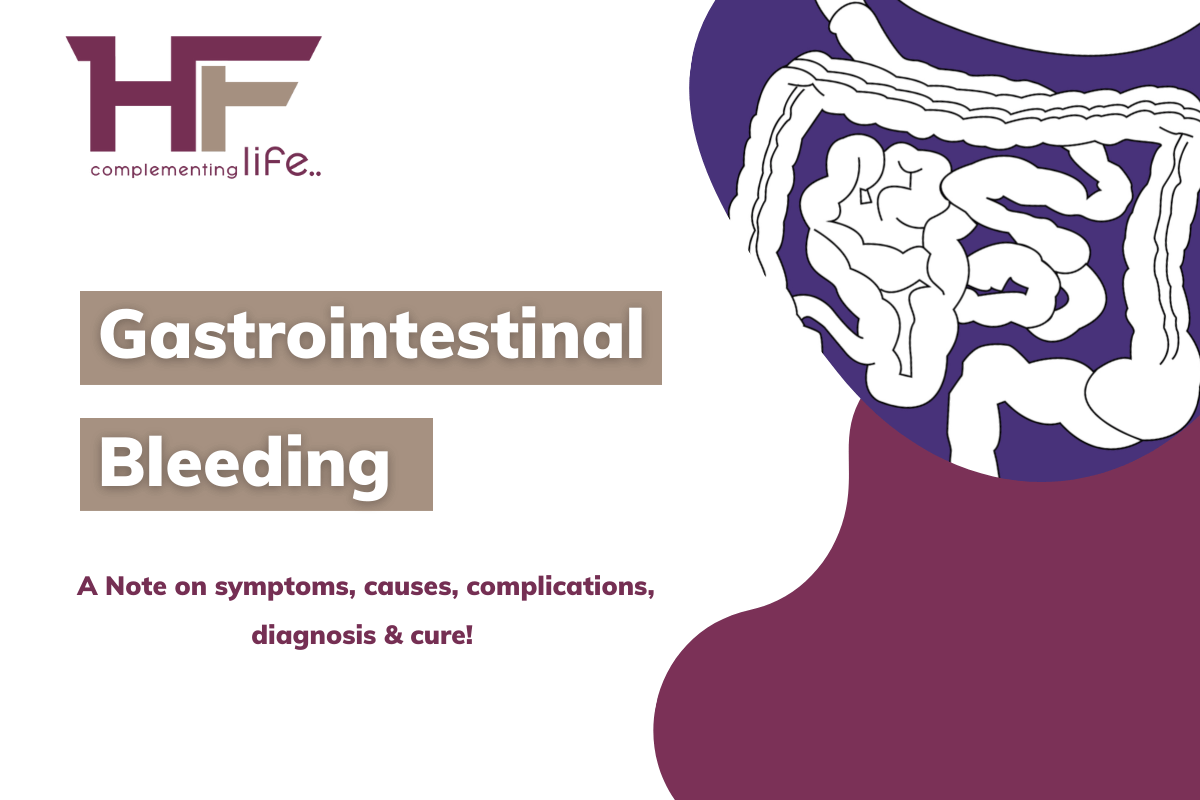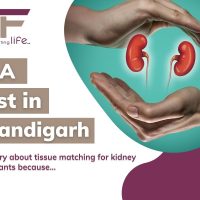Tell me, what do you think the health condition, gastrointestinal bleeding, is?
Well, internal defects do not reveal themselves so easily. But, when they send alert signals in front of our eyes, the situation is most likely to be serious! One such serious condition that gets invoked from certain defects in the digestive tract is gastrointestinal bleeding.
Yet again, what is the exact underlying condition that results in gastrointestinal bleeding? That is what you are wondering, I suppose!
Perhaps, digestive tract enlists diverse organs, namely, the esophagus, stomach, large intestine, small intestine, rectum, and anus. The blood that you find in your stool or maybe in the toilet paper can come from either of these organs. Difficult to detect, indeed!
However, medical science has been able to classify them in terms of the location of the defect. It means gastrointestinal bleeding is categorized into distinct types. The bleeding that occurs in the stomach or esophagus is what we call upper GI bleeding, while the one taking place in either of the intestines, rectum, or anus is called lower GI bleeding.
So varies the amount of bleeding! Sometimes, it can be in a small amount. But, sometimes, deadly and life-threatening.
Wait! There’s more to it, and we shall discover them all. Precisely why we are here, writing this note to you!
In the very first place, let us see what the signs are that the condition of GI bleeding leaves us with.
CContents
Penning down the signs of GI bleeding!
The alerts of GI bleeding will not always be visible to us. It is because they are occult or hidden at times. Whatsoever it be, the symptoms are determined hugely by the location of the defect. The bleeding can emerge anywhere from the mouth of the GI tract to the end, that is, the anus. Now, let us note down what they are!
We shall begin with the obvious ones. The signs, which are called the overt signs of GI bleeding! And they may show up as –
- first is the rectal bleeding that comes into notice in or with your stool, or maybe in the toilet paper and toilet bowl. The blood, bright red, black, or brownish in color, and you can easily understand that an internal problem exists! It is time to consult a doctor.
- Do you frequently witness tarry stool, totally black? It is a sign indicating that you may have gastrointestinal bleeding. Here, your call to action will be to straightaway consult a gastrointestinal doctor.
- Are you vomiting blood for a prolonged period? Blood that appears with a coffee ground texture, somewhat dark brown. Or is it red in appearance? Both the cases are overt or open indications of GI bleeding. Book an appointment with a GI doctor immediately. Neglecting such a sign can undoubtedly fall heavy upon you in the near future.
Then comes the occult signs! These signs will not affirm gastrointestinal bleeding unless diagnosed, as they may even be an alert of other complex health conditions. But, GI bleeding can be a probable cause. So, if you see any of the signs laid below, do not hesitate to get a whole body check-up. Perhaps, prevention is any time better!
- Are you facing severe abdominal pain? A pain that does not let you sleep at night? It may be because of GI bleeding, which you certainly cannot see with open eyes.
- Do you suffer from chronic chest pain that refrains you from pursuing your regular activities? Yeah, it might be a cardiac problem. But, GI bleeding can also be another underlying alert!
- If you ever face difficulty in breathing and you know that there isn’t any asthma or other pulmonary issue, it can be a possibility that you are having GI bleeding.
- Light-headedness is another occult symptom of GI bleeding. You feel like your body getting heavier, but your head getting lighter, somewhat like a balloon. You will have a sensation that your head is not getting enough blood. Your vision turns cloudy, and you lose balance. Hereupon, call your physician as soon as possible.
- Last but not least, fainting is an occult sign of GI bleeding. You feel dizzy and have absolutely no energy to hold your body onto the ground. That is not something mild often. Talking to your physician about it is always a better option!
In fact, sometimes, you can witness occult and overt symptoms together. It happens mostly when the bleeding starts abruptly, and you go into a stage of shock. At that time, you may witness –
- A sudden drop in the blood pressure,
- The amount of urination goes down or becomes infrequent,
- Your pulse rate gets rapid, and
- You may fall unconscious at intervals.
These alerts highlight acute syndrome in your GI tract and need medical attention on an immediate basis. When you reach out for it, the doctor will diagnose and tell you the actual cause of your bleeding.
Why not learn about the causes beforehand? It will help you to understand what your doctor is trying to state. Indeed, better than being clueless in front of him or her!
Unveiling the causes of GI bleeding!
By now, you can understand that in this segment of our note, we shall unveil the health conditions that can lead to gastrointestinal bleeding. Here again, the causes are categorized into two, depending on whether it is an upper GI bleeding or the lower.
In the case of upper GI bleeding, the underlying causes are –
- Esophagitis – This particular condition is nothing but inflammation or enlargement of the Esophagus lining, the passage connecting the throat to the stomach. Such a condition may even damage the tissue of your esophagus if not treated. One of the most common signs of this defect is a major difficulty in swallowing food.
- Esophageal Varices – During this specific health condition, the veins in your esophagus get enlarged, consequently obstructing the blood flow through the portal veins that supply blood to the intestines, liver, and pancreas. Mostly acute liver disorders can pave for the rise of such a condition.
- Peptic Ulcers – Being one of the most common causes of upper gastrointestinal bleeding, such a health condition involves the rise of open sores in the inner lining of the stomach. These sores can also develop in the upper portion of the small intestine. Well, do you know what the factors are that contribute to such a complex condition? Use of anti-inflammatory drugs thy be!
- Mallory–Weiss tears – Even though the term sounds too uncommon, the condition is not! A tear in the tissue of your lower esophagus is what doctors call a Mallory-Weiss tear. And it can affect your health by invoking a lot of bleeding, especially for people who consume an excessive amount of alcohol.
On the other hand, the causes of lower GI bleeding are –
- Haemorrhoids – Somewhat similar to the varicose veins that happen in your upper gastrointestinal tract, this condition occurs in your lower rectum or anus. Yes, you got it right! Your veins in the anus or lower rectum get swelled up from both inside and outside. Thus, leaving you with immense pain. By the word of mouth in our daily life, we call these condition piles!
- Colon Polyps – In this regard, small clumps of cells emerge in the lining of your colon (or large intestine) further, protruding into the colon. It can therefore cause enormous bleeding. Alert! These polyps may even develop into deadly cancers if not removed. However, mostly they are harmless.
- Tumors – Benign, malignant, or metastatic tumors forming in the colon or rectum, or anus tend to weaken the digestive tract lining. And subsequently, cause bleeding. If the tumors are malignant or metastatic in nature, they shall destroy all the normal cells of your digestive tract and disrupt the entire gastrointestinal system inside your body.
- Inflammatory bowel disorders – Resulting out of the deregulated immune system, such a condition is called an idiopathic disease. The lining of the digestive tract swells up, causing chronic pain. Besides, it involves two acute clinical entities, one being Crohn’s disease and the other being ulcerative colitis. You are likely to witness those complications when your immune system is hypersensitive to gut bacteria.
- Diverticulitis – While small and bulging pouches grow in the digestive tract, known as diverticula, your gastrointestinal functioning is likely to deteriorate. And when these pouches get infected or swell up, the condition is what medical science refers to as Diverticulitis. Do you know that your unhealthy dietary habit can be the main cause behind it? That is right! High fat and low fiber diet trigger such a condition.
- Colitis – One of the most common causes of lower GI bleeding stands to be Colitis, the condition where your colon gets inflamed because of food poisoning, infections, parasites residing inside your digestive tract, reduction of blood flow to your colon, or Crohn’s disease.
- Anal Fissures – A tear in the muscular ring of your anal splinter resulting from hard stool or constipation is known as anal fissures. The thin and moist tissue called mucosa lining your anus gets hard, and you face difficulty in passing the stool. Further, causing excess bleeding during the bowel movements along with pain.
Now that you know the various health conditions which contribute to GI bleeding, do not neglect even a single sign of it! Why so? Well, it is because the condition, if neglected for a prolonged period, can volunteer either unexpected complications. Certainly, the ones that are horrific and life-threatening!
Do you want to know what those complications are? This note kept room for it! Read more to know more.
Are there any further complications?
There is only one answer to this question. It is, yes! A further complication can anytime take the stage if not prevented at its earliest. Let watch them out down the line!
- Anemia – When neglected, GI bleeding can lead to anemia, a condition where the count of your red blood cells goes below normal and therefore cannot carry enough oxygen to your body cells, tissues, and organs. In turn, it causes heart failure. Isn’t that risky for your life?
- Spread of infection – GI bleeding can potentially risk your life by spreading infections due to enormous blood loss. Infections, when spread to different parts of the body especially in the lungs or heart, can put a setback upon your health even after proper treatment.
- Need for Blood transfusion – In case of acute upper GI bleeding, the hemoglobin rate falls, demanding blood transfusion. It is because the unstable hemoglobin can push you to the state of hypoperfusion (in simple words, shock) that can, in turn, lead to stroke.
- Metastatic cancer – GI bleeding can manifest cancerous cells to grow and spread massively. It occurs especially when your colon cancer has reached the third or last stage, and you are struggling to survive. Usually, there is no cure for such a complex health condition.
- Myocardial infarction – In simple words, we call it a heart attack. The condition where the blood flow stops or decreases just in the position of the coronary artery or heart! Thereupon, damaging the heart muscles. It is what, in medical terms, is known as myocardial infarction. And is a major complication evoking due to acute upper GI bleeding.
- Respiratory syndrome – Complexities like sudden distress while breathing is a major stake put forward by conditions like GI bleeding. In this context, fluids fill up the alveoli of your lungs, the tiny air sacs, thus limiting sufficient oxygen to reach your bloodstream. Risky, indeed!
- Death – Above all, GI bleeding can lead to death. The last thing to be thought of, perhaps! Statistics say that GI bleeding accounts for 10% of sudden deaths occurring due to various pathological conditions. Probably, just in five minutes! Moreover, the main condition triggering GI bleeding, ultimately pushing you towards death, is esophageal varices.
However, consulting a doctor at the right time can save. The doctor will use the latest diagnostic methods to examine the exact condition and provide you with the necessary treatment thereafter.
Relax! Medical Science has come up with remarkable advancements in the field of diagnosis. And there are multiple ways to trace your health condition that results in gastrointestinal bleeding.
That is exactly what we are going to see next! The various diagnostic methods for a condition like GI bleeding.
Sit back to learn about them.
Diagnosing gastrointestinal defects: What are the different methods?
After asking about your medical history and symptoms, the GI doctor may request you to provide a stool sample for examining the presence of blood and its colors.
Why does the doctor examine the color?
It is because the color reveals the exact location of the bleeding. If the color is bright red, it indicates origin from the rectum or colon as the origin, while on the other, the black color of blood shows its origin in the stomach or maybe elsewhere in the digestive tract.
After that, the doctor will suggest you pursue certain tests. They are as follows.
- X–Ray – The doctor, along with a team of radiologists, will undergo a scan of your gastrointestinal tract with a harmless radioactive tracer. This tracer will be injected into your veins and shed light upon your bleeding location through imaging.
- Endoscopy – Endoscopic examinations are done mostly to detect upper GI bleeding. A small camera located at top of a flexible tube, known as endoscopy, will be inserted from your throat down to the upper GI tract. This camera will showcase your internal organs, particularly the GI tract, and efficiently locate the origin of bleeding.
- Enteroscopy – If the endoscopic examination does not work, the doctor suggests an enteroscopy test. Particularly, it is because the healthcare service provider cannot locate any bleeding spot in your upper GI tract. This means the location may lie in the lower GI tract. In this context, the procedure is almost similar to that of endoscopy. The only difference is that a balloon is used along with the camera-tipped tube with which it is attached. The balloon, once inflated, will allow your doctor to see inside your intestines.
- Colonoscopy – For examining lower GI bleeding, colonoscopy is the diagnostic method used, generally. Here, your GI doctor shall insert a small and flexible tube inside your rectum with a camera attached to it. This particular method helps the doctor to get a complete sight of your colon across the entire length. Moreover, the air within the tube renders a clear image.
- Biopsy – Additionally, the doctor may ask for tests like a biopsy, especially if he predicts the presence of cancerous lumps in your colon. In this process, a small amount of tissue is removed for using it as a sample and examined through a microscope.
- Pillcam Test – Also known as capsule endoscopy, this particular test is used to check your small intestine. In this case, the doctor will request you to intake a pill. Surprisingly, the pill comprises a minor camera for taking the images of your bowel automatically. And confirms the source of bleeding. There is nothing to fear about! The capsule will naturally move out after eight to seventy-two hours during excretion. Meanwhile, the doctor will conduct X-rays to see where the capsule is present at the very moment.
Once the process of diagnosis is complete, the doctor will proceed with your health treatment. What shall that be?
Stick with our note to know the cure.
Cure for the condition!
The cure varies greatly in terms of the location of the bleed. Mostly, medications are given to control the bleeding. For instance, the doctor provides an IV drug called proton pump inhibitor to put a check upon the bleeding and suppress stomach acid production, mainly for upper GI bleeding. On the same note, octreotide is another medication given at times.
Sometimes, medicines are allocated right during the process of diagnosis. For example, treatment of peptic ulcers is undertaken straightaway during the process or endoscopy. Likewise, colon polyps are also eliminated during the process of colonoscopy.
Following these methods, you may be injected with requisite fluids through an IV needle, depending on the amount of your blood loss. For this purpose, the doctor may ask to stop taking thinning medications like aspirin. Similarly, non-steroidal anti-inflammatory medications are also prohibited during the treatment of GI bleeding.
In the case of excess blood loss, the doctor may ask for immediate hospitalisation to monitor and regulate the blood pressure and heart rate. Normal saline or lactate singer’s solution will be given to you, here.
But, your doctor will not be able to perform the treatment procedure if you do not indulge in some of the basic home care. The cure is not a one-sided effort from the healthcare service providers.
It is your health, and you have to, anyhow, make it right!
For this reason, here go some regular health tips to follow if you have GI bleeding.
- Try consuming fibrous food daily and avoid having dairy products like cheese, ghee, milk, butter, or chocolates. Of course, any kind of junk food is also included in the don’ts.
- Quitting alcohol consumption and smoking tobacco is a must in this regard! Alcohol can make your body dehydrated, thereby increasing complexities.
- You have to drink a lot of fluids, not hard liquor for sure, but plain simple water, approximately eight to ten glasses daily.
- While having GI bleeding, maintaining hygiene is a must. Otherwise, infections can spread across your body and stimulate the scope of complications.
And many more ads per the doctor’s instruction. He/she shall tell you all.
Concluding remark:
Hence, it can be concluded that the note for underscoring the whereabouts of GI bleeding along with the signs and symptoms, underlying causes, the further risk factors, ways of diagnosis, and treatment is here to serve you in staying cautious about this definite health condition.
Anytime you notice a sign, feel free to book an appointment with a GI doctor in Chandigarh straightaway on our online platform.
We, Health Finder, the largest online marketplace for healthcare & wellness, are at your service! We facilitate affordable and high-quality medical care by connecting you to the best diagnostic centers, hospitals, clinics, and doctors in the city that too without a waiting list and with pretty good discounts.
The choice is, of course, yours!
Identify your health problem and get it healed at the earliest phase!










Comments